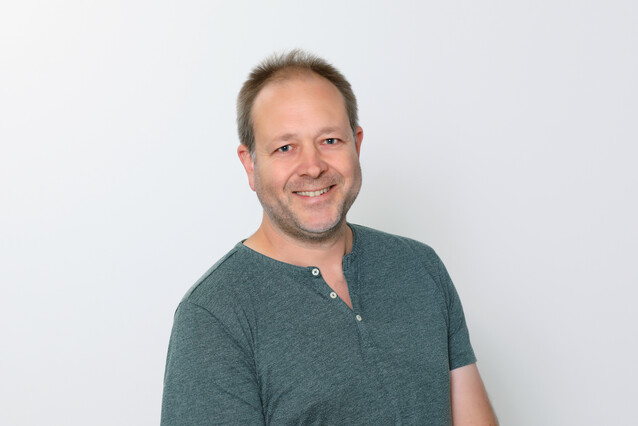Austrian Science Fund awards competitive grant to Alexander Stark
The Austrian Science Fund will support the research of IMP senior group leader Alexander Stark. Scientists in his lab will investigate how DNA fragments called ‘silencers’ regulate the activity of the genome during development and as the body maintains internal balance.
As an organism develops and maintains itself, its cells use their genes in a finely regulated manner – switch this gene on, switch that gene off. The custom-regulation of genes allows for a wide variety of cell types to arise from the same genome: from neurons and skin cells to blood and muscle cells.
Some DNA fragments play a major role in regulating genes, including activating ‘enhancers’ and repressive ‘silencers’. While scientists have extensively investigated enhancers, many properties of silencers, their location in the genome, and the proteins that mediate their repressive functions are yet to be described.
Senior group leader Alexander Stark will now address this gap in our understanding of gene regulation with a Stand-Alone Project grant from the Austrian Science Fund (or Fonds zur Förderung der wissenschaftlichen Forschung, FWF). Researchers in his lab will use computational analyses of silencers to reveal their chromatin and sequence characteristics. They will then identify the proteins required for silencer function using DNA-affinity purification and mass spectrometry, and determine the silencers’ target genes by rapidly depleting specific proteins and measuring transcription with PRO-seq. Finally, they plan to determine the functions of candidate silencers in fruit fly cells.
“Gene regulation influences all the processes of the cell, in health and disease, in development, and as we age. Yet, some of the biggest questions in gene regulation can only be addressed now, thanks to recent technological advances,” explains Alexander Stark. “My PhD student Lorena Hofbauer is the driver of this project. She developed a novel, genome-wide method for the high-throughput identification of silencers and I’m very excited to employ it at a broad scale.”
Lorena Hofbauer and Sebastian Kleinfercher, both students in the Vienna BioCenter PhD Program, will take on this project.
About the Vienna BioCenter PhD Program
Much of the work underlying this grant was done by a doctoral student of the Vienna BioCenter PhD Program. Are you interested in a world-class career in molecular biology? Find out more: https://training.vbc.ac.at/phd-program/
Further reading
New insights into repressors of gene transcription
